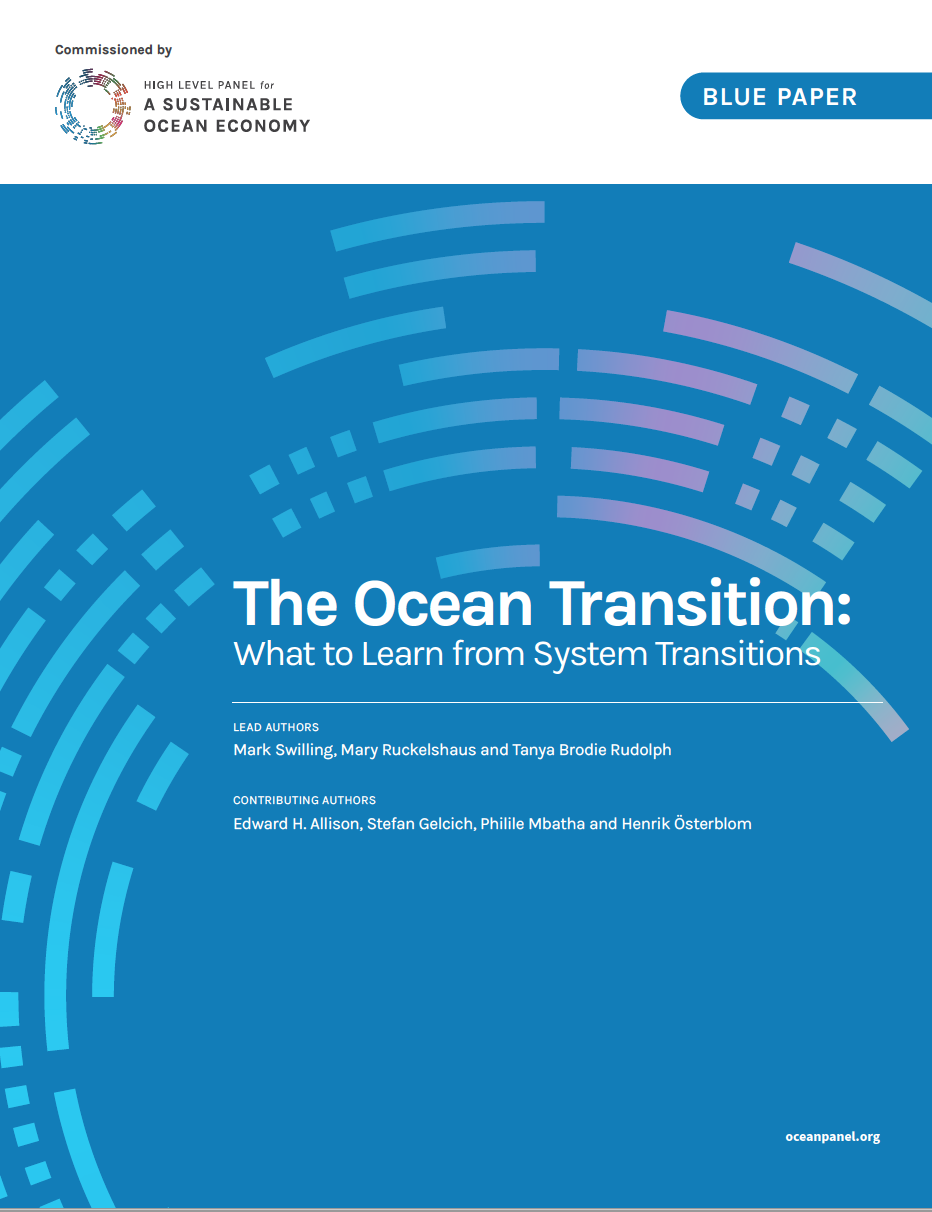
The Ocean Transition: What to Learn from System Transitions
Author(s): Mark Swilling, Mary Ruckelshaus and Tanya Brodie RudolphLink to CST author(s): Prof. Mark Swilling
Publication:
Year: 2020
Full reference: Swilling, M., M. Ruckelshaus, T. Brodie Rudolph et al. 2020. The Ocean Transition: What to Learn from System Transitions. Washington, DC: World Resources Institute. www.oceanpanel.org/blue-papers/ocean-transition-what-learn-system-transitions.
Download publication
Summary
The ocean is the ultimate commons. Sustainability narratives now recognise what science continues to demonstrate—that ecosystems on land, rivers, deltas, estuaries and the ocean are intrinsically linked. There is a growing consensus that the prosperity and well-being of humanity depends on the health of the ocean environment, including the ocean-climate nexus. Critical indicators reveal that business as usual is going to result in the collapse of key biophysical ocean functions, with major implications for the global economy and societies. Science has demonstrated that these close systemic interlinkages in and among ecological, economic and social systems require solutions which are responsive and flexible, robust yet elastic.
It is also evident that time is of the essence. A new relationship between humanity and the ocean is thus required. It follows that the transition to a new and effective governance system for the ocean should ensure that it ‘does justice to humanity’s obligations to itself, and to the planet which is its home’.

